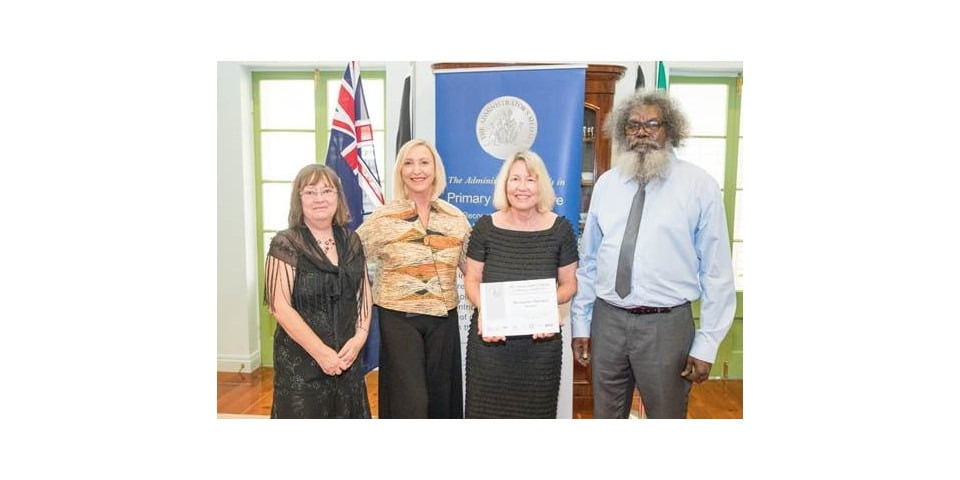The Maningrida Pharmacy Service won the Administrator’s Medals in Primary Health Care 2018 on October 31, presented by Vicki O’Halloran AM, Administrator of the Northern Territory (NT), at an official awards ceremony held at Government House.
Presented each year, these prestigious awards recognise health professionals who are striving to customise their service and engage their patients and peers to improve health and wellbeing in NT. The awards, now in their 11th year, called on territorians to nominate outstanding health professionals for medals in the following categories: ‘individual’, ‘team’ and ‘whole of practice/health clinic’.
The team-medal-winning Maningrida Pharmacy Service was developed as a joint collaboration between Mala’la Health Service Aboriginal Corporation and community pharmacy United Chemists Palmerston in 2014 to address the lack of access to pharmacy services that existed for Maningrida residents. The pharmacy program was initially established as a three-days-per-fortnight service in 2014 and was so successful that funding was secured in early 2017 to extend it to a fully comprehensive, five-days-a-week onsite pharmacy service.
A local health worker and pharmacist work together to tailor individualised medication-management plans for clients. They have also implemented a medication-review service whereby home visits with a local health worker are offered to review and discuss medication issues.
Access to quality advice by a pharmacist has provided a substantial enabler in maximising the health literacy and health outcomes for people in Maningrida. Guild member and proprietor of United Chemists Palmerston Shelley Forester said: “United Chemist Palmerston’s vision was to develop a model with a sustainable pharmacist workforce – ensuring an onsite pharmacist was always available to offer a comprehensive pharmacy service.
“This has ensured pharmacists are always available to provide a reliable, quality and sustainable service, overcoming the issues of transience and workforce limitations that exist in remote communities in the Northern Territory.”










